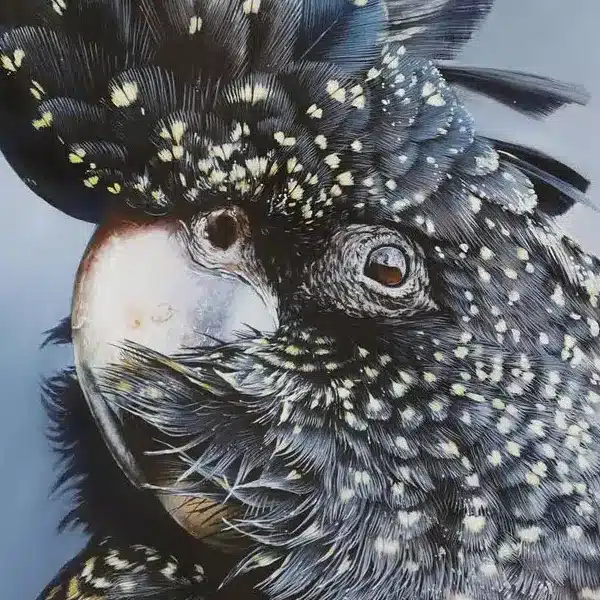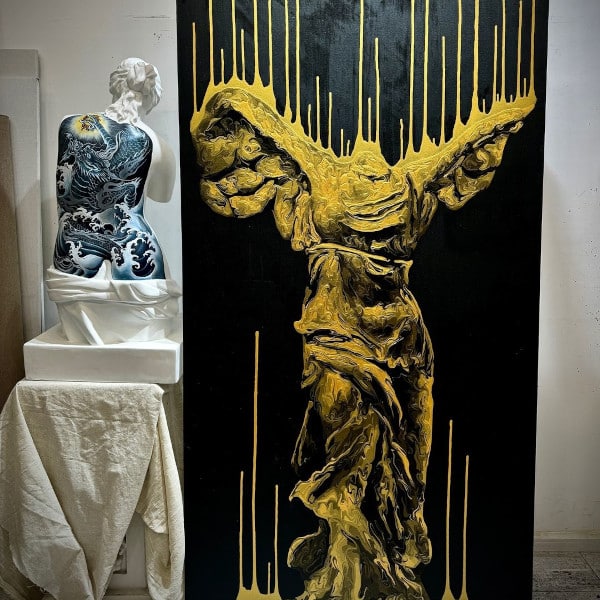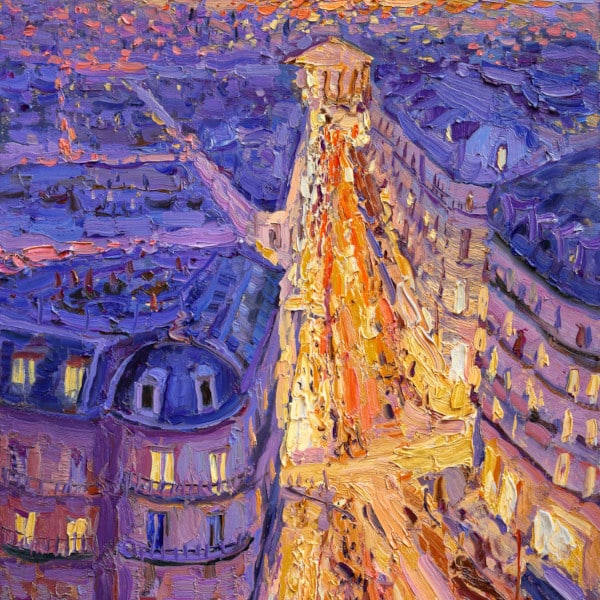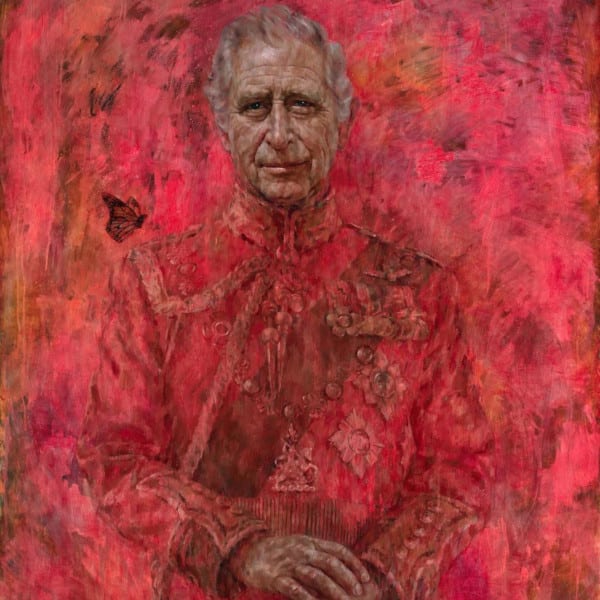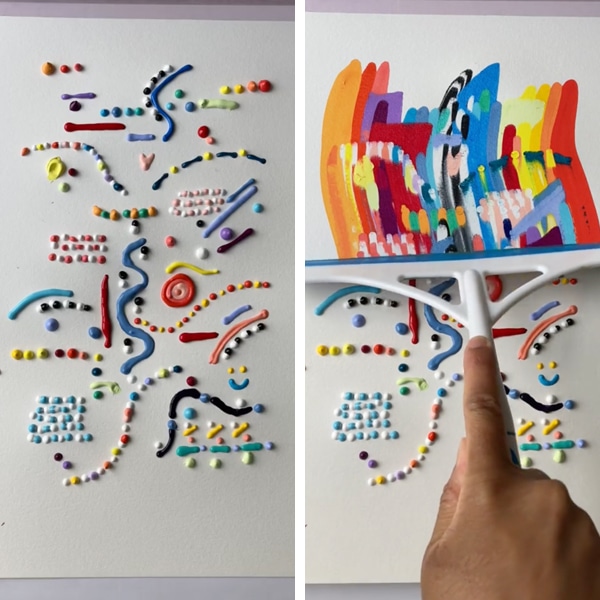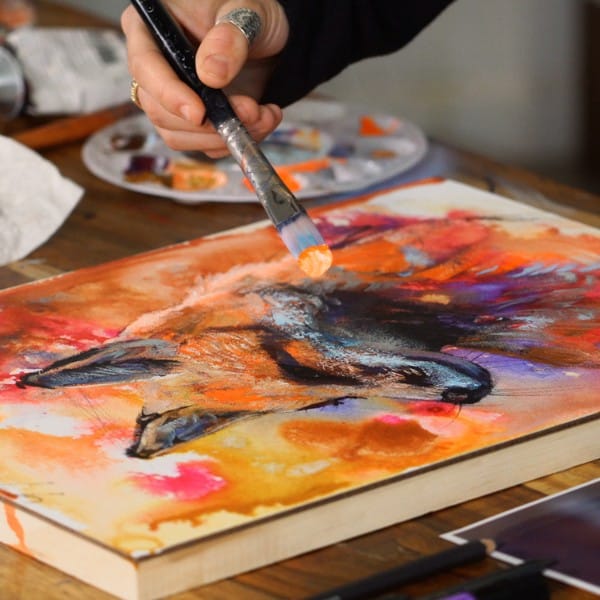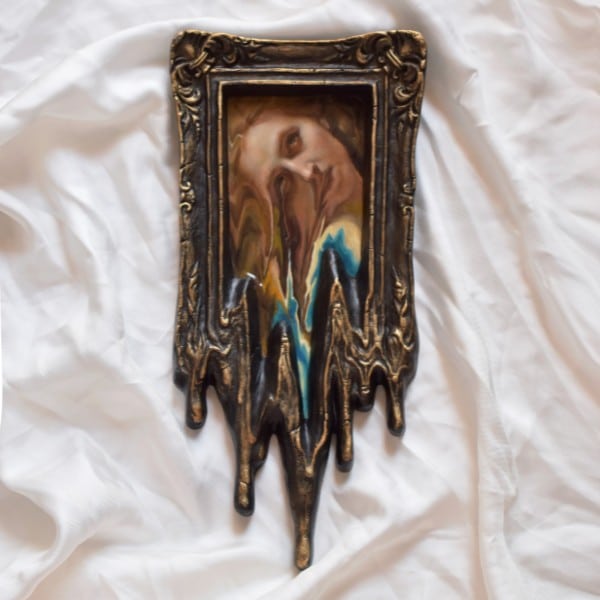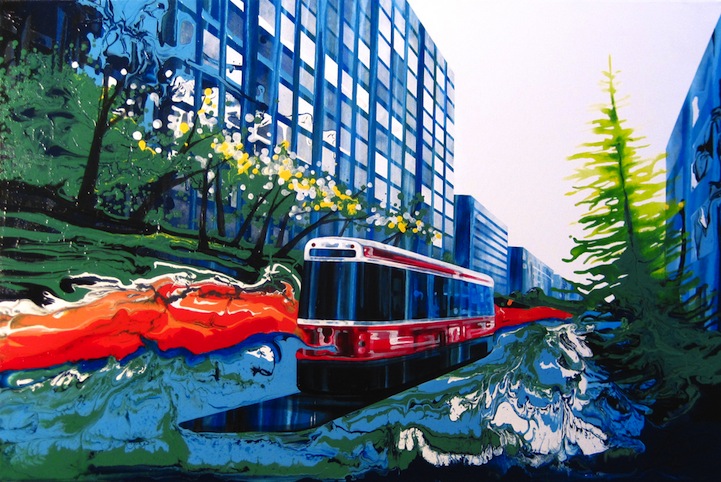
Amy Shackleton, who is only 25-years-old, is a unique artist. While her paintings use tons and tons of paint, she doesn't use paintbrushes to create them! Rather, she squeezes paint onto canvases and then allows the paint to naturally drip. She then rotates the canvas to control the direction of the drips, making her paintings appear natural yet controlled.The subjects of many of her paintings are also quite interesting. They often feature a blend of the natural world and the man-made world, such as a river in the streets, trees growing with skyscrapers and cities in mountainous ranges.
We were so intrigued by her process that we decided to ask Amy some questions. Check out the interview, below, and don't forget to check out her website for many more works.
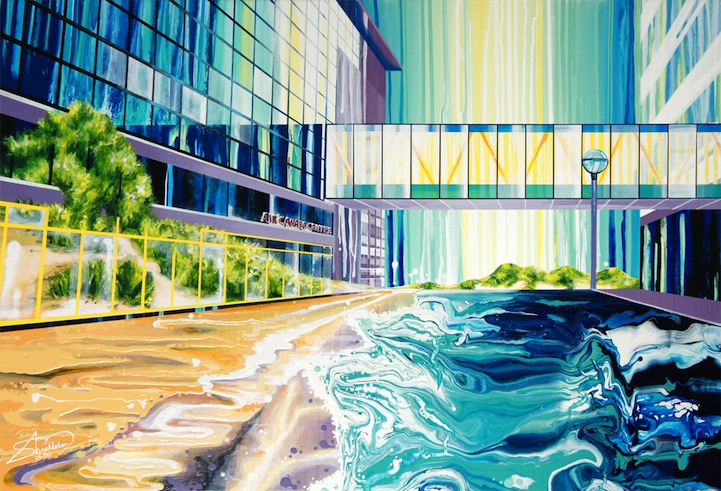
When did you first know that you wanted to become a professional artist?
I remember back in kindergarten, the teacher went through a list of things we could be when we grew up, and when I heard artist as one of the options on the list, I just grinned from ear to ear. I thought, ‘You mean I can do this for a living?' Ever since then I worked towards my goal.
As a child, I taught myself the basics by drawing and sketching in my free time. I focused on art my whole life and received my BFA degree a few years ago. Now I'm painting full-time, having solo exhibitions and participating in international art fairs! It's a dream come true.
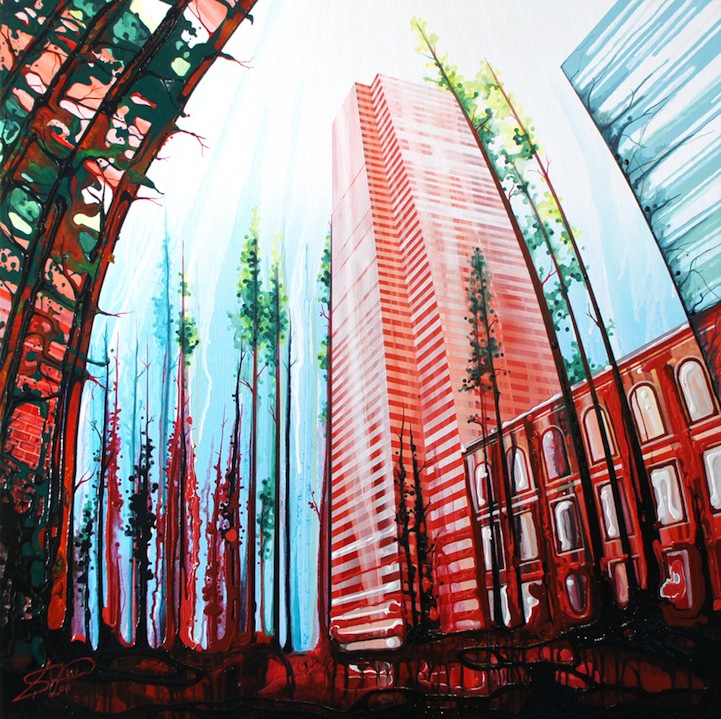
Your process is so unique. How did you first come up with it?
I've been working towards this technique for a few years now. Right out of school I was doing dripping, but it was mostly with a brush. As time went on, I started introducing the drips as a natural part of the inspiration for my work. It was a more organic way to express myself, as opposed to the hard-edge details of the more concrete forms. So I started dripping on the floor, and rotating the canvas on my easel to direct the flow of paint.
I worked on unstretched canvas at first, so the surface was flexible and I could move it whichever way I wanted. And that worked pretty well. But when I became more experienced with my technique, I abandoned my brush completely and started dripping concrete forms and more straightedge details on a stretched canvas. It was more exciting and fun to challenge myself to work with gravity alone. It's interesting to look back at the last three years, because with every piece, I used fewer and fewer brushes and then finally, only drips. So it was a process.
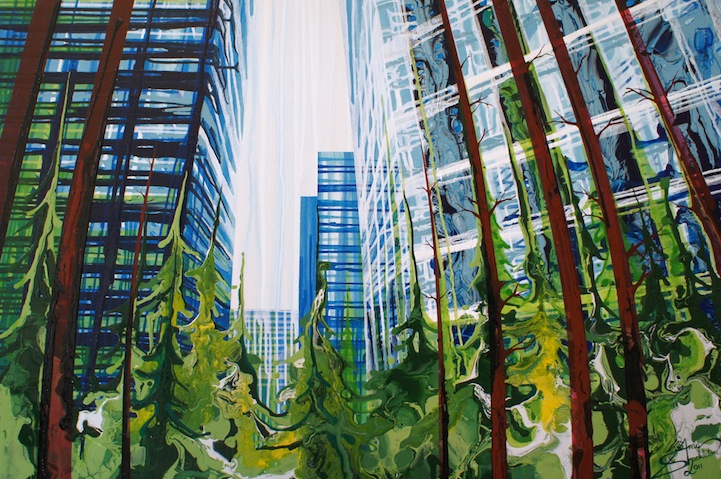
How long does each piece take from start to finish?
It depends on the piece, but on average it takes 35hrs over the course of 1-2 weeks to finish a painting (not including the drying time between layers).
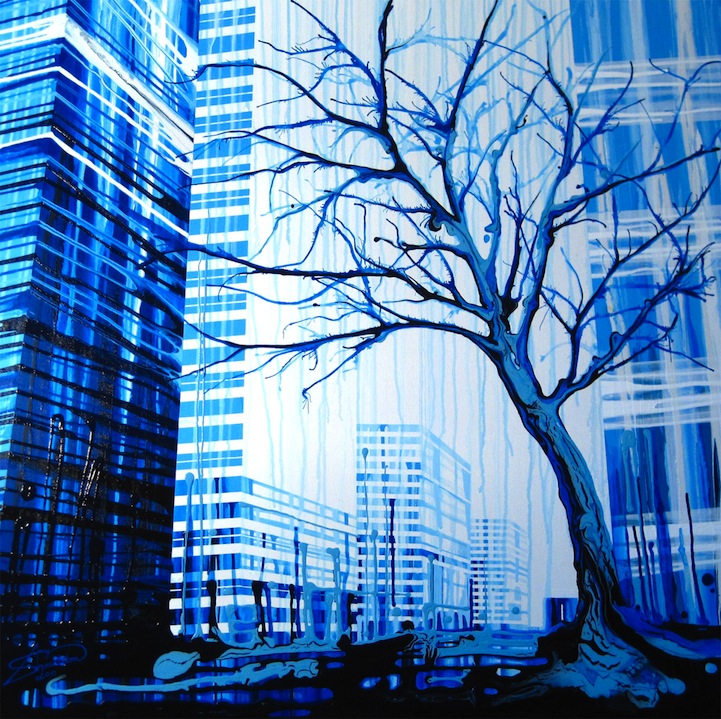
How do you stay creative? Who are some other artists that inspire you?
It's really easy for me to get inspired. A great example is the International art fair that I was just exhibiting at last weekend in Toronto. It's just so great to see the energy of hundreds of artists in one space at the same time. It's really incredible.
At first I looked to other artists for inspiration to try and find out what my style was. I looked to people like Andrew Rucklidge in Toronto, and I've always loved Salvador Dali. But now I look not to other artists so much, but locations and other places to really inspire each piece. I take photos everywhere I go. So far I've managed to explore parts of Ontario, Quebec, Alberta, Croatia, Vienna, Peru, New York, Chicago, Boston, England, Morocco, etc.
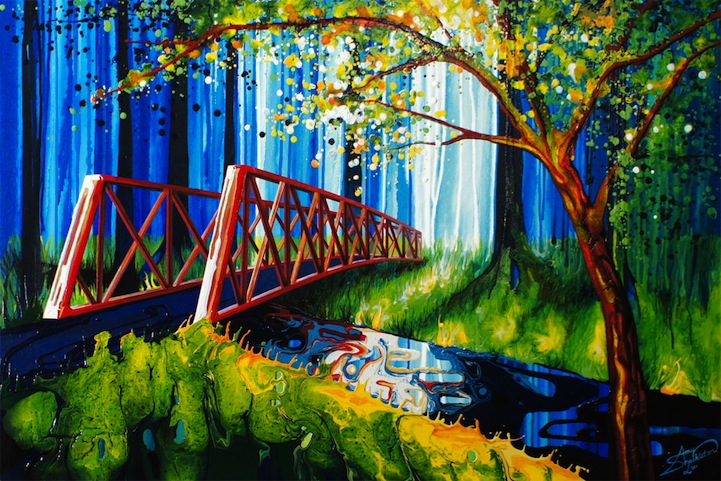
What's next in store for you?
I'm working on a new series inspired by Italy, more specifically the Amalfi Coast, Naples and Rome. From there, I will finish a few commissions and start preparing for my next solo show at The Elaine Fleck Gallery in Toronto.
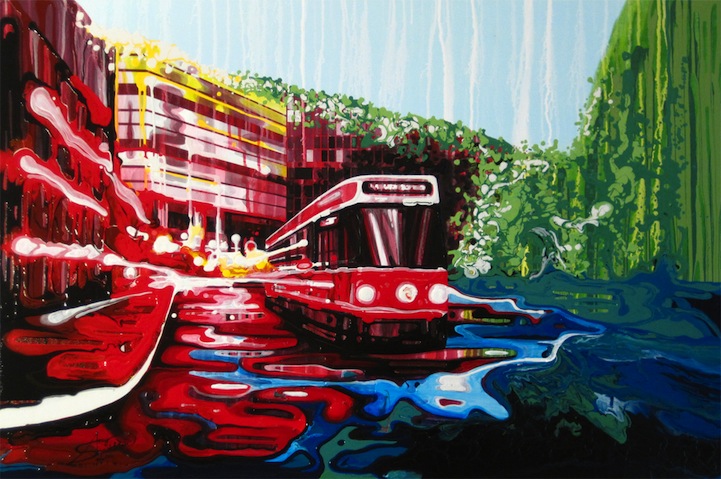
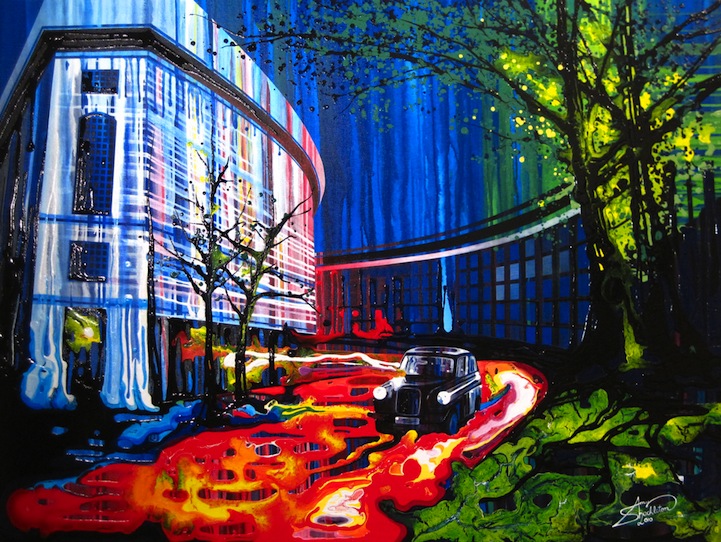

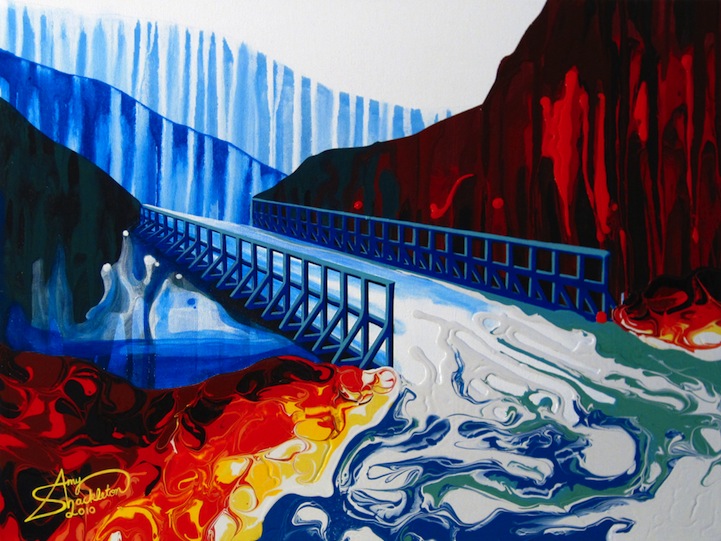
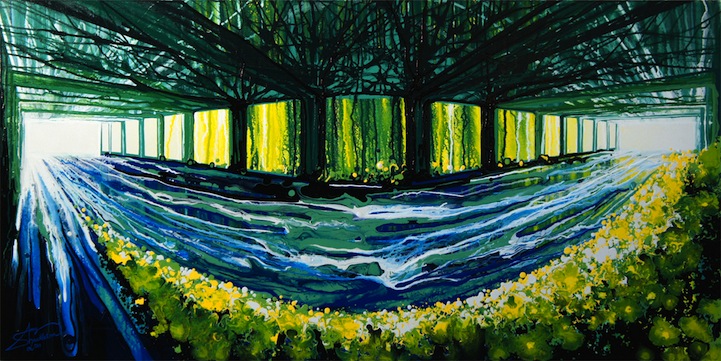
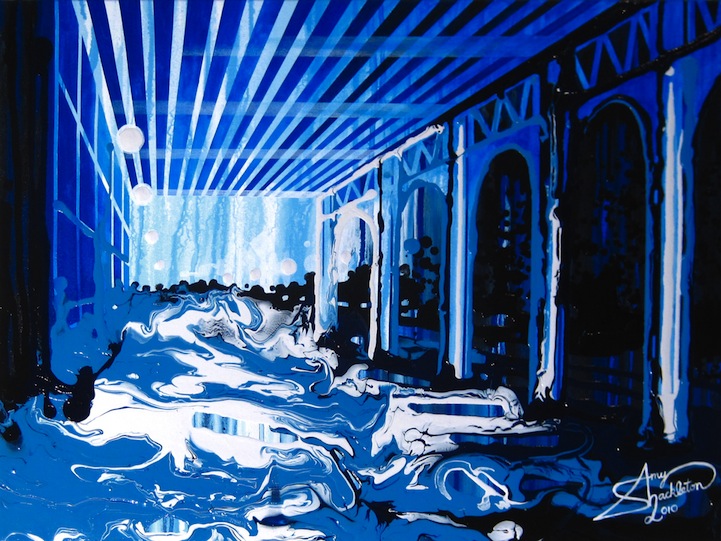
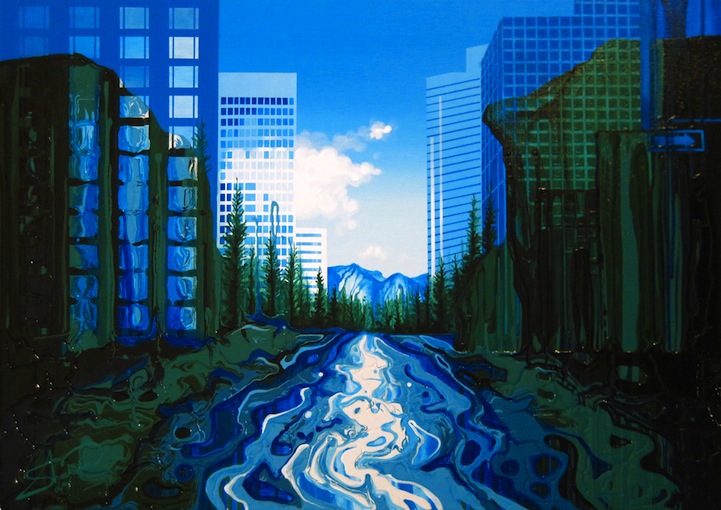
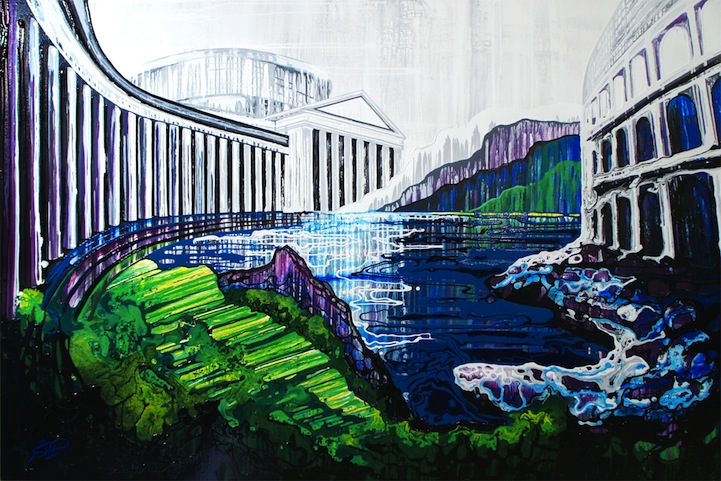
Thanks Amy for answering our questions and keep up the great work!













































































